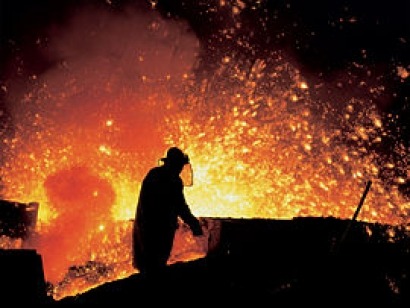
The revolutionary fuel production process recycles waste gases that would otherwise be burnt into the atmosphere as carbon dioxide to produce aviation fuel with just half the carbon footprint of the standard fossil fuel alternative. “This technology will enable airlines to dramatically reduce their carbon footprint by reusing gases that would otherwise have been emitted directly into the atmosphere. It promotes sustainable industrial growth, as the process enables manufacturing plants to recycle their waste carbon emissions,” explains Dr Jennifer Holmgren, Chief Executive of LanzaTech.
Within two to three years Virgin Atlantic plans flights with the new fuel on its routes from Shanghai and Delhi to London Heathrow as LanzaTech and partners develop facilities in China and India. The technology is currently being piloted in New Zealand, a larger demonstration facility will be commissioned in Shanghai this year, and the first commercial operation will be in place in China by 2014. Following successful implementation, a wider roll-out could include operations in the UK and the rest of the world.
LanzaTech estimates that its process can apply to 65 % of the world’s steel mills, allowing the fuel to be rolled out for worldwide commercial use. The energy company believes that this process can also apply to metals processing and chemical industries, growing its potential considerably further.
Speaking as he announced the partnership today, the President of Virgin Atlantic, Sir Richard Branson, said: “We were the first commercial airline to test a bio-fuel flight and we continue to lead the airline industry as the pioneer of sustainable aviation. This partnership to produce a next generation, low-carbon aviation fuel is a major step towards radically reducing our carbon footprint, and we are excited about the savings that this technology could help us achieve.
"With oil running out, it is important that new fuel solutions are sustainable, and with the steel industry alone able to deliver over 15 billion gallons of jet fuel annually, the potential is very exciting. This new technology is scalable, sustainable and can be commercially produced at a cost comparable to conventional jet fuel.”
Virgin Atlantic will be the first airline to use this fuel and will work with LanzaTech, Boeing and Swedish Biofuels towards achieving the technical approval required for using new fuel types in commercial aircraft. A ‘demo’ flight with the new fuel is planned in 12-18 months.
“The recycling of waste gases that would otherwise be emitted to the atmosphere to produce transport fuels, in a process such as the Lanzatech one, provides an excellent opportunity to reduce emissions associated with the use of petroleum fuels in transport,” commented Dr Ausilio Bauen, Head of Bioenergy at Imperial College London.
50% saving in carbon emissions
This next generation technology overcomes the complex land use issues associated with some earlier generation biofuels – and detailed analysis suggests the fuel will produce around a 50% saving in lifecycle carbon emissions. The Roundtable for Sustainable Biofuels (RSB), the leading international body to ensure the sustainability of biofuels production, will advise the team to ensure the fuel produced meets key environmental, social and economic criteria.
Virgin Atlantic believes that this development will take the airline well beyond its pledge of a 30% carbon reduction per passenger kilometre by 2020. The investment in renewable fuels is part of our wider programme to reduce carbon through measures such as using new, more fuel-efficient aircraft and supporting a global carbon cap and trade scheme, through our involvement in Aviation Global Deal group.
For additional information:


